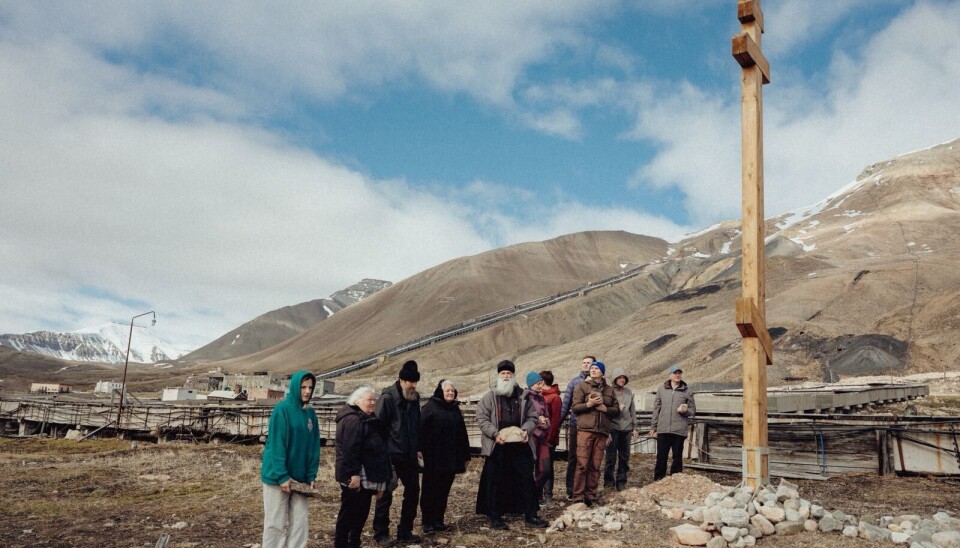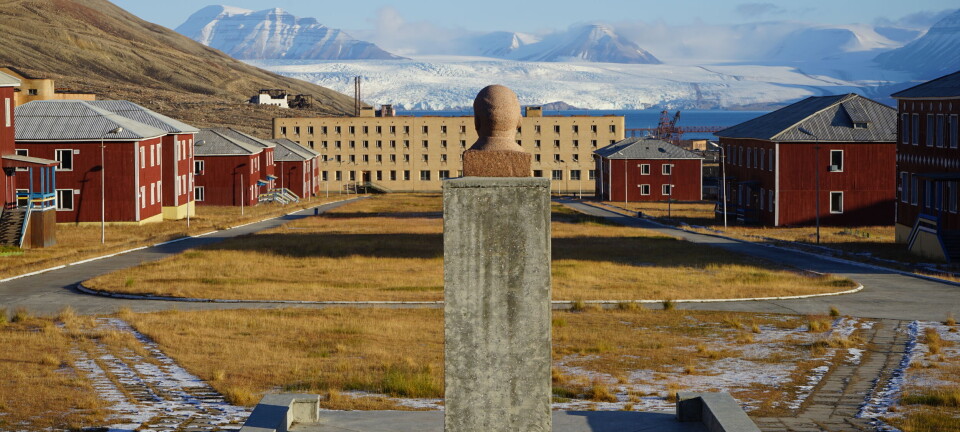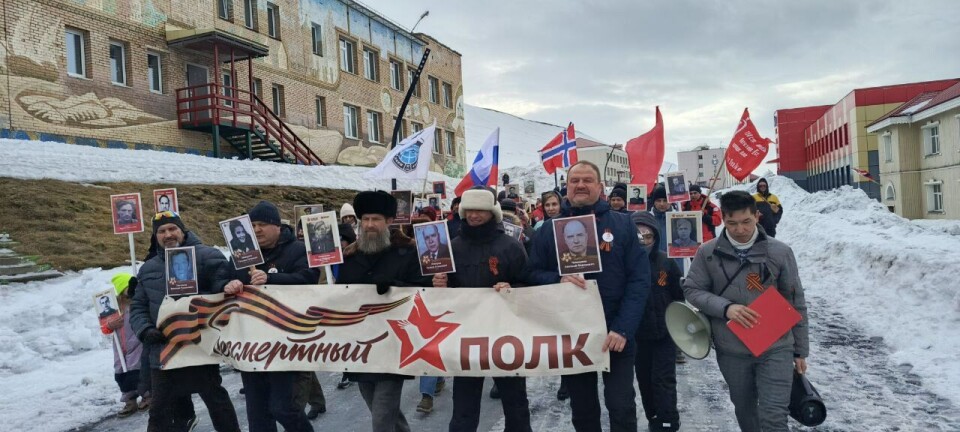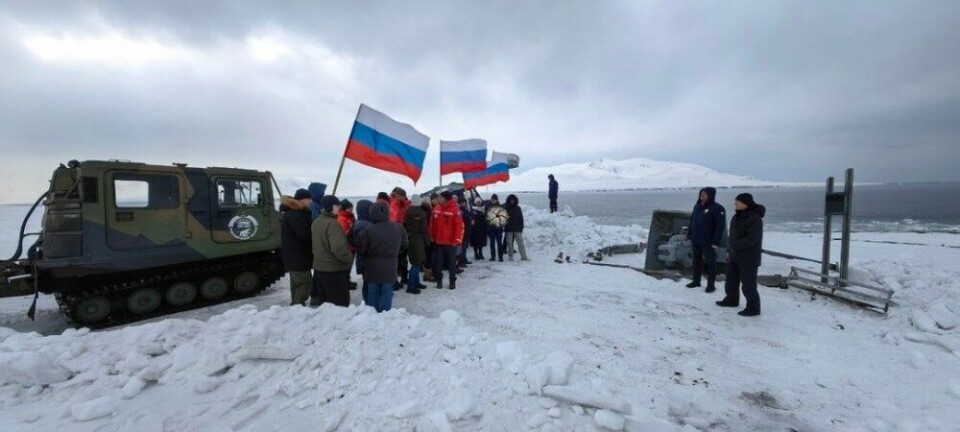
At Svalbard, Putin's Arctic spiritual emissary marked nazi-Germany’s invasion of the USSR
Bishop Iyakov, who backs Russia's war on Ukraine, returned to the controversial cross he erected at the Norwegian archipelago two years ago.
Bishop (Vladika) Iyakov is known as the Kremlin's spiritual weapon in Arctic regions. The clergyman was until March this year head of the parish in Naryan-Mar, which oversees Russia's militarized polar regions, like Novaya Zemlya and Franz Josef Land. Today, he reports directly to Patriarch Kirill and continues to swing his brush with holy water where needed to boost Russia's historical narratives.
One such narrative is Putin framing Kyiv as a hotbed for neo-Nazism, and therefore wrongfully claims the invasion of Ukraine as a continuation of the Soviet Union's fight during the Great Patriotic War (second world war).
Known as Operation Barbarossa, Hitler's forces attacked the Soviet Union on June 22, 1941. In 1996, Russia proclaimed June 22 as the Day of Remembrance and Sorrow.
"June 22 is a special date for all of us; this day is marked by the deep symbolism of history," Iyakov said when he this year arrived to Pyramiden on the anniversary date.
"In 1941, June 22 was a Sunday; and now, in 2025, as in 1941, this is the second Sunday after Trinity, the day when we, all orthodox people of Russia, celebrate the memory of all Russian saints," the bishop said according to Arktikugol on Vkontakte.
Iyakov, and his fellow travelers, each laid a symbolic stone of faith in front of the seven meters tall Russian orthodox cross.
No Soviet soldiers where killed on Svalbard during second world war. All miners and their families were evacuated back to mainland Soviet Union before nazi-German naval forces came to the archipelago.
The cross in Pyramiden, by Iyakov devoted to Georgii the Victorious, the saint seen in Russia as the protector of soldiers, was raised in 2023 without informing Norwegian authorities on Svalbard. As it was placed outside regulated areas in Pyramiden, the Norwegians ordered it re-located to inside the ghost-town where it now stands.
As previously reported by the Barents Observer, the controversial bishop came to Svalbard onboard the Professor Molchanov, a Russian ice-strengthened oceanographic research vessel that this summer for the first time sails passenger tours directly from Murmansk to Barentsburg.
When sailing directly from Russia, passengers don't need a Norwegian visa as Svalbard is not part of the Schengen-area.

















